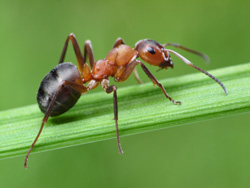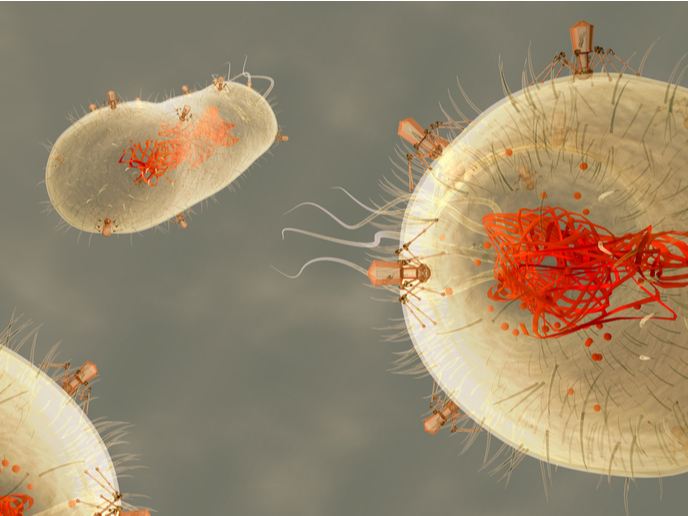Mind control in ant zombies
The observable properties of an organism are its phenotype, which by definition is the product of genes and environment. Taken further, extended phenotype takes into account all effects a gene has on its environment and this principle is graphically illustrated in cases of parasite-host relationships. One of the most notable is that of the fungus, Orchicordyceps and its ant host. Infected ants under the behavioural control of the fungus will clamp (behaviour known as the 'death grip') to a leaf's vein about 25 cm above the ground on the north side. For clamping to happen, humidity and ambient temperature must also be at specific levels. Not surprisingly, these conditions favour fungal development. Following the ant's grizzly death, the fungus produces spores from a special fruiting body that grows out of the ant's head. The spores are then picked up by another unsuspecting 'zombie' ant. The prime objectives of the EU-funded 'From ecology to mechanisms of the extended phenotype' (ANT FUNGI EP) project were to test the hypothesis that southeast Asia was the centre of diversity of ant-infecting Cordyceps and that Cordyceps fungi are ecologically specialised. From the point of view of research on behavioural control by the fungus, the team of scientists initiated research on the molecular basis behind the eerie insect takeover phenomenon. Fungi from different ant colonies were isolated from a range of different ants in Brazil and the United States. The project has been successful in rearing the extracted fungus on specially formulated medium and achieved the spore production stage which is used for dispersion. for advanced molecular analysis, it is necessary to grow the parasitic fungus without its protective cell walls – a difficult procedure. The ANT FUNGI EP team reached the stage where their research has led to a formulation of the necessary conditions. The project members are confident of success and aim to continue research on ant control behaviour at the molecular level using the fungal protoplast. research into extended phenotypes can give an insight into complexities of parasite-host interactions and, in the case of the 'death grip' of ants infected by the fungus, disease dynamics and evolution of virulence.







